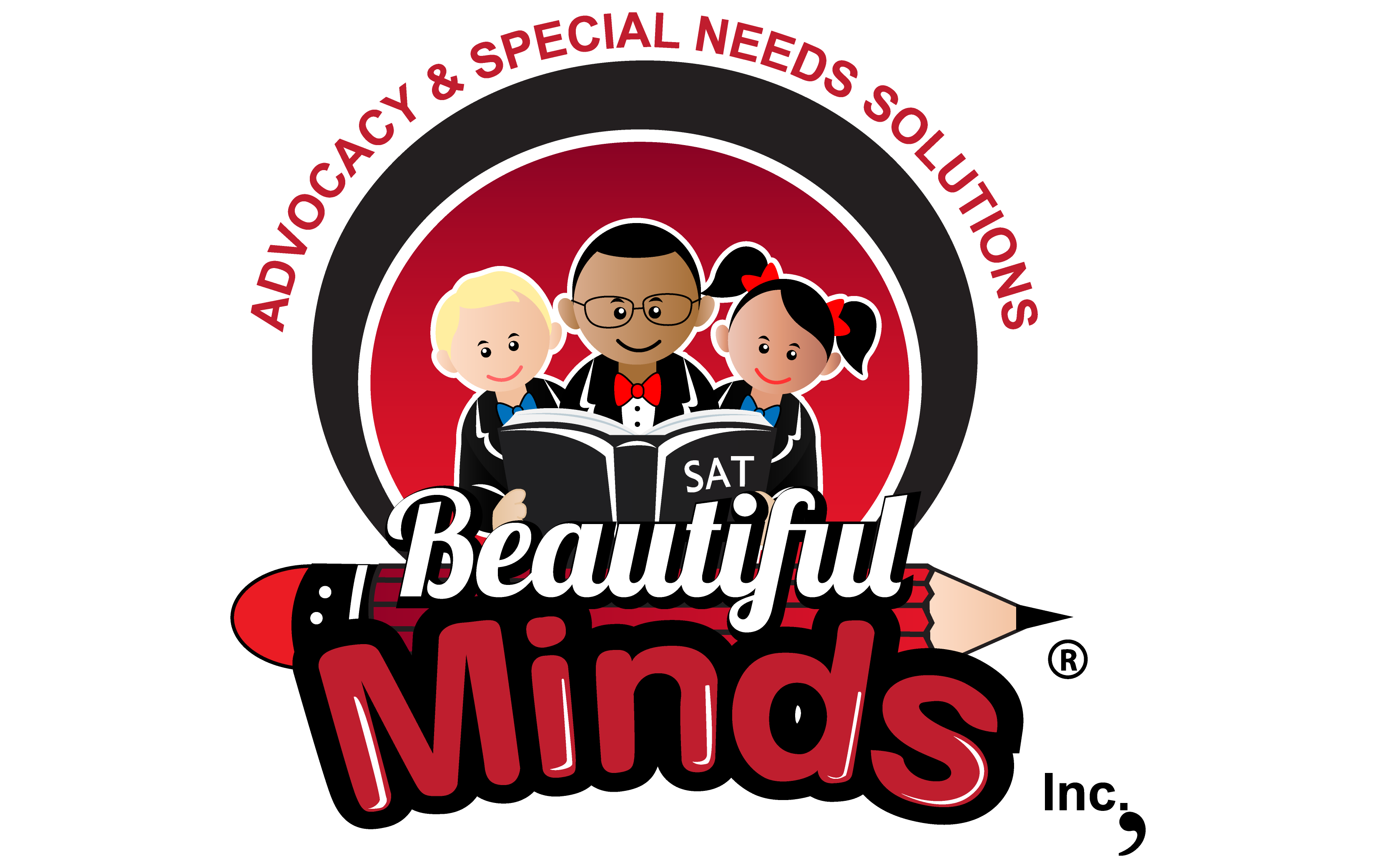Frustrated by your child’s IEP/ARD team?
Beautiful Minds Inc.- Advocacy & Special Needs Solutions
…We are your SOLUTION!
Frequently Asked Questions
Historically, a learning disability has been defined as a significant discrepancy between ability (usually IQ) and achievement, Along with a disorder in a psychological processes (i.e. memory, auditory processing, attention). Psycho-educational evaluations are necessary to determine if the child meets this criterion. Current law (as of July 2005) may be changing how a learning disability is defined, as the current law often leaves slow learners without additional services, and to avoid overrepresentation of minorities in special education.
Your child may have difficulties that interfere with his/her ability to go to school or to learn. These difficulties may be in one of these general areas:
• Speech and language development
Some children may have a very difficult time learning to speak clearly and/or understanding what is said to them.
• Vision Problems
Some children may have a great difficulty seeing objects and/or printed words even though may already be wearing glasses.
• Hearing Problems
Some children may have difficulty hearing and/or distinguishing sounds and voices, even with hearing aids.
• Physical Development
Some children may have trouble learning to walk, move, or work with small objects.
• Academic Development
Some children may have great difficulty learning to read, write or do arithmetic. Young children may have trouble with pre-school skills such as learning shapes and colors.
• Thinking/ Memory Skills
Some children may have more difficulty than others in remembering what they see or hear. As a result, it may be a challenge for them to solve problems in daily living or schoolwork.
• Attention/Perception Skills
Some children may have difficulty processing or understanding information. As a result, it may be hard for them to pay attention or follow instructions.
• Social/Emotional Development
Some children may have trouble managing their feelings and/or behavior. They may find it very difficult for them to get along with others. It may be hard for them to make friends or to cope with changes in their daily lives.
• Living Skills
Some children may be challenged by day-to-day activities such as dressing themselves, hygiene, grooming, feeding themselves and taking care of their basic health needs.
Call your local public school for assistance. Should your child need an assessment for special education services, please contact Beautiful Minds Educational & Special Needs Services, Inc. (Note: You will be asked to give written permission for the assessment).
An assessment involves gathering information about your child to determine whether your child has a learning disability and to what extent. An assessment may include individual testing, observations, interviews, and reviews of school records, reports, and work samples.
When school is in session, Beautiful Minds Educational & Special Needs Services, Inc. shall assess, review, and share the completed results of the testing within 15 business days. Summer sessions, the return rate shall be no more than 10 business days.
You will be invited to an IEP meeting which will be held to share the results of your childs assessment and to determine if your child has special needs which make him/her eligible for special education services. If your child is eligible, the IEP will describe the services and programs they may need. If you are in need of IEP assistance, Beautiful Minds Educational & Special Needs Services, Inc. offers IEP consulting and advocacy.
Individualized Educational Program. Academic, Review and Dismissal
Free and Appropriate Public Education.
No! Special education is for students who have DISABILITIES, not just for children of color. It should be a last resort after all other interventions have failed. Special education, as utilized by the affluent, can offer students a way to level the playing field if a learning or other disability makes it extremely difficult for a child to learn or achieve. The affluent have utilized special education as a way to access specialized programs and services such as individual computers, one to one tutors, extended time to complete tests (including the SAT and other college entrance exams), art and recreational therapy, and attendance at private schools. A good special education program can increase the possibility for your child to exceed his or her potential.
No! They cannot recommend it, provide it, or demand it. It is solely up to you if medication intervention is appropriate for your child. Sometimes it is, but many times it isn’t! Research shows that ADHD medication provided with counseling or behavior therapy is the most effective way to work with children who have been diagnosed ADD/ADHD.
Schools in the state of California are not permitted to give IQ tests (i.e. Wechsler Intelligence Scale for Children, to children of color. They can be used in private assessments, with parental consent. California is the only state in the United States with this law. As psychologists, our rule of thumb is to NEVER use any one score or test to make educational decisions.
All parents have educational rights, but most do not know what they are or how to exercise them. Beautiful Minds Inc.- Educational & Special Needs Solutions will empower you to make excellent choices for your child by discussing your options with you, and clearly informing you of your rights.
BEVERLY HILLS, CA 90211
Phone: 310-590-5898
E-Mail: INFO@BEAUTIFULMINDSINC.COM
Web: BEAUTIFULMINDSINC.COM
All Rights Reserved- Beautiful Minds Inc.2019
